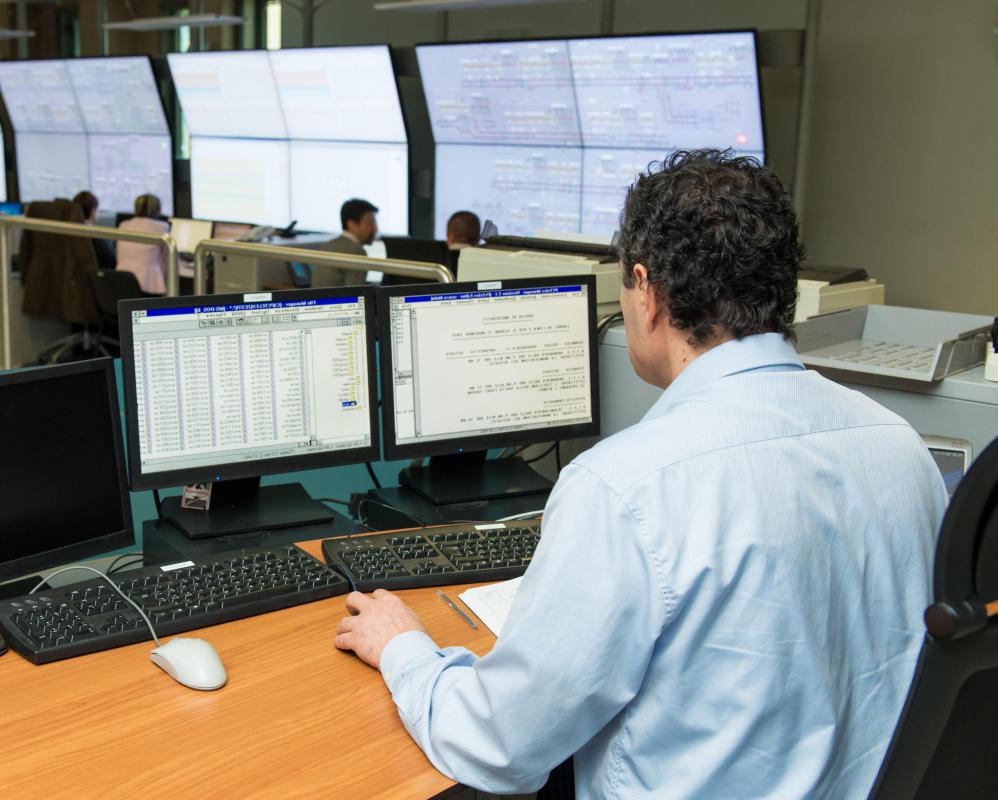At EasyTechJunkie, we're committed to delivering accurate, trustworthy information. Our expert-authored content is rigorously fact-checked and sourced from credible authorities. Discover how we uphold the highest standards in providing you with reliable knowledge.
What is a Multitasking Operating System?
A multitasking operating system is any type of system that is capable of running more than one program at a time. Most modern operating systems are configured to handle multiple programs simultaneously, with the exception of some privately developed systems that are designed for use in specific business settings.
With older examples of the multitasking operating system, managing two or more tasks normally involved switching system resources back and forth between the two running processes. The system would execute tasks for one, freeze that program for a few seconds, and then execute tasks for the other program. While this approach did create a short time lag for the operator, this lag was usually no more than a few seconds, and still offered considerable more efficiency than the older single-task operating system.

Over time, popular incarnations of the multitasking operating system were developed that used a different approach to allocating resources for each active program. This created a situation where virtually no time lag occurred at all, assuming that the equipment driving the system had adequate resources. For the end user, this meant the ability to perform several tasks simultaneously without any waiting for the system to release or redirect resources as each task completed in turn.

The typical multiple operating system requires more resources than the simple operating systems that were common for desktop computers in the late 1970s and early 1980s. Newer systems require platforms with a considerable amount of random access memory (RAM) as well as other type of virtual memory. If the resources are not available to drive the various applications that are open and being executed, the system may slow to a crawl, or possibly even shut down an application or two if that is the way the system is configured to prevent overload.
Today, most desktop, laptop, and netbook operating systems function with some type of multitasking operating system. Even equipment such as automatic teller machines or ATMs still make use of some type of multitasking system, using a series of programs to check balances and execute the requests made by users. There are also examples of movie ticket stub systems that are able to perform several tasks at once, including posting receipts for tickets purchased, even as the system generates and dispenses the purchased tickets.
AS FEATURED ON:
AS FEATURED ON:












Discussion Comments
@everetra - I think the real threat to Microsoft’s market dominance of operating systems will come from the Google operating system. This is already a work in progress as Google has done a lot of work towards releasing open source applications for the “cloud,” that is, over the Internet.
I’ve used Google Docs for example and it’s a great alternative to Microsoft Word. I’ve also played with other Google applications that can be accessed online and they are comparable to Microsoft applications. Right now these applications are web-based but the moment Google releases a desktop operating system (and they have the money to do so) for Windows, Microsoft will have to watch out.
From what I understand Google already has an operating system called Chrome for Linux, but it will be the Windows port that will be the game changer. It will be interesting to watch whether Google or Microsoft wins in the end.
@Mammmood - Yeah, the Android operating system is modeled after Linux too from what I understand. Google now owns them and there are hundreds of thousands of applications for Android devices.
I own an Android phone and I have a Java compiler that I use to write free applications for the operating system. I could write programs that I could charge money for I suppose but I mainly use it for personal things like keeping track of my contacts and so forth.
It wouldn’t be too hard to sell my own apps on Android however. Unlike IPhone, there are fewer hoops that you have to jump through to make your application available on the Android operating system.
@everetra - I agree that Windows has led the pack for many years, but now multi tasking is part of the kernel of every operating system on the market, from desktop computers to PDAs.
Even the Linux operating system has its own graphical user interface which allows flipping back and forth between different applications.
The most well-known multitasking operating system, Windows, has led the charge for many years in multi-tasking. I remember the debut of Windows in the early 1980s. While it was not a totally new technology – Xerox had something similar and Bill Gates was accused of stealing the concept from them – it was still new to the personal computer mass market.
Prior to Windows, I had to run programs in MS-DOS, which only let you run one program at a time. I could switch between different tasks in the same program using a menu system, but still it was one and the same program.
Windows changed all that and made it possible to switch back and forth between applications like Word and Excel, multiplying my productivity. I think Windows more than anything made personal computers popular. Otherwise, computers would be nothing more than dummy terminals dedicated to one program at a time.
Post your comments